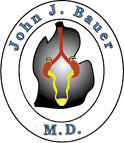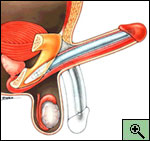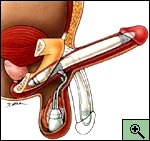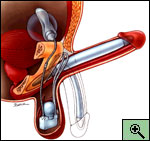


![]() GETTING STARTED
GETTING STARTED
![]()
![]() Site Map
Site Map
![]()
![]() Disclaimer
Disclaimer
![]() ABOUT US
ABOUT US
![]()
![]() Physician
Physician
![]()
![]() Our Services
Our Services
![]()
![]() Patient Info
Patient Info
![]()
![]() Job Opportunities
Job Opportunities
![]()
![]() Contact Info
Contact Info
![]()
![]() Home
Home
![]()
![]() OUR SPECIALTY
OUR SPECIALTY
![]() CENTERS
CENTERS
![]()
![]() Center for Male
Center for Male
![]() Sexuality
Sexuality
![]()
![]() Center for
Center for
![]() Urinary Control
Urinary Control
![]()
![]() Center for
Center for
![]() Prostate Diseases
Prostate Diseases
![]()
![]() PROCEDURES
PROCEDURES
![]() & SURGERIES
& SURGERIES
![]()
![]() In-Office Procedures
In-Office Procedures
![]()
![]() Your Surgery Details
Your Surgery Details
![]() LEARN MORE
LEARN MORE
![]() ABOUT UROLOGY
ABOUT UROLOGY
![]()
![]() Health Calculators
Health Calculators
![]()
![]() Links
Links
![]()
![]() UrologyChannel
UrologyChannel
|
||
|
General Information |
Diagnosis and Evaluation |
Treatment Options
After reading about this topic, please return to:
but one that is usually correctable." Impotency, or the new buzz words "erectile dysfunction" is the inability to have an adequate erection, which is a common problem affecting young as well as older men. There is often an embarrassment associated with this problem, and most men think that they are one of the very few persons to be so affected, but, in reality, it is a very common problem. There is a significant negative impact on the quality of life for the patient and his partners. It used to be thought that almost all cases of impotency were psychological in origin. This is not the case today. However, many patients do have some psychological overlay to the problem. Impotency is intensely intertwined with manliness and loss of erections often provides great anxiety in the patient. This anxiety to perform is often the cause of continued problems even after correction of the initiating cause of the impotency. We call this anxiety performance failure or fear of failure. The anxiety associated with whether there will be a failed erection induces such failure. This is often unconscious in nature and the patient is unaware of the degree that the mind is playing in the continued failure. One cannot will an erection up, but one can prevent such from happening. As our anxiety level rises, we liberate epinephrine from our sympathetic nervous system. This compound in very minute amounts causes the artery going into the penis to constrict, thus reducing the blood flow in and resulting in a lack of or a loss of the erection. As a society, we are very much performance orientated. That is, we are concerned not about the quality of the lovemaking, nor whether our partner or we are satisfied, but whether it works. It is because of this that the couple often needs to have a better understanding of what it is that each expects from the other, followed by a change in how we make love, what our attitudes are, and how we interact with our partner in order to help correct the problem. The causes of impotency are quite varied. It may be due to an infection or congestion of the prostate, side effect of medication or drugs, cigarette smoking, blockage of the blood vessels to the penis, damage to the nerves of the penis, lack of hormones, or associated with some diseases such as Peyronie's disease, diabetes, trauma to the pelvis or post-operative from such surgeries as resection of the prostate or radical surgery on the bladder, prostate, or colon. A layman's explanation by Dr. Bauer about impotence is available at the marked link. Initially, the patient is evaluated with a detailed medical (see male new patient questionnaire) and sexual history (see office sexual questionnaire) to determine the type of problem, and for how long the problem has existed. The problem is manifested in many ways such as a decrease in one's sexual desire, difficulty in getting a satisfactory erection, difficulty in maintaining an erection, decrease in the quality of the erection, difficulty in ejaculating, pain or blood in the ejaculate, or premature ejaculation. This questionnaire provides a score that determines if you in fact have an erectile dysfunction that would require a urology consultation. If your score is less than 21 points, please contact us for an appointment. The office questionnaire is an exhaustive battery of questions on sexual function. It will be the data that goes into your electronic medical record as part of the consultation narrative. In general, there is a logical and step-wise evaluation to determine the cause of the problem, which in addition to the history usually consists of a physical examination, blood testing and at times, blood pressure measurements of the penis or x-rays of the corpora of the penis. The physical exam not only involves the genitourinary system, but also looks for signs of other medical problems that can cause erectile dysfunction, especially arteriosclerosis, Diabetes (sugar) and high blood pressure. Lab tests usually include a general battery of blood tests and urine analysis to include a general electrolyte panel, renal function, glucose, liver function, urine dipstick and testosterone level. The diagnostic tests frequently performed are: Treatment of erectile dysfunction is largely dependent on what the cause is. If there is a significant psychological component to the current erectile function and the NPT studies prove that the patient has normal nocturnal erections (your unconscious erections throughout the night, which all males with intact erectile function have), you will be referred for sex counseling or therapy. If there is an organic component the usual course of therapy is from the most conservative treatment to finally surgery. The order of therapies used by our physicians is:
The staff of Michigan Urology Associates, Inc. and the Center for Male Sexuality also performs many procedures in the office at a reduced fee compared to the same procedure in the Hospital. For descriptions about these office procedures please go to the specific links for the procedure that you are interested in as marked below. Our practice treats a variety of urological conditions; included below are the most common procedures that we perform in the office that are involved in the diagnosis and treatment of erectile dysfunction:
Minimally invasive therapies
Michigan Urology Associates, P.C. also performs many of its urological services in the local Hospitals or surgical facilities. The outpatient and inpatient surgeries listed below are performed at these facilities. The procedures listed below are direct links to "Your Surgery Details" which will have everything that you would want to know about you procedure from after the diagnosis until fully recovered. Please use this section to learn about your upcoming surgery or to contemplate whether you really what a surgical procedure. To read an overview of some of the possible pitfalls with penile implants, Dr. Bauer has written this overview for patients: Pitfalls of Penile Implants. Open Surgery ( Penile Implants):
Center for Male Sexuality | ||
www.flinturology.com Flint, Michigan [map] ~ ~ ~
FREE Plug-ins you may need for special pages of our site: |

[an error occurred while processing this directive]



